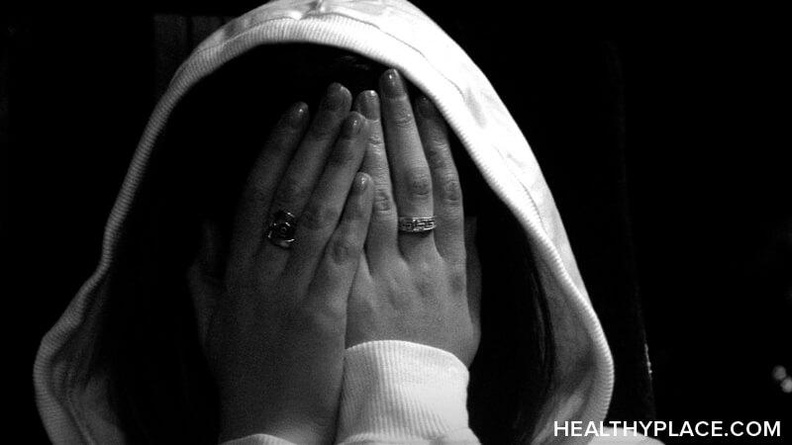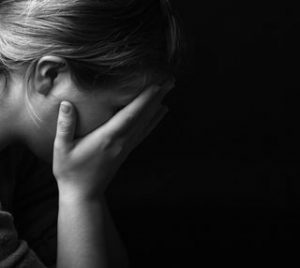Complex PTSD--The Result of Long-Term Trauma

Complex PTSD (posttraumatic stress disorder) results from experiencing prolonged trauma, over which the person has little or no control, and from which escape seems hopeless. Many times, complex PTSD affects those who suffered ongoing physical, emotional, or sexual abuse during childhood and victims of long-term domestic violence.
Causes of Complex PTSD
Any long-term trauma that causes severe interpersonal stress can result in developing complex PTSD. Typically, it involves circumstances where the victim has (or perceives that there is) little chance of escape, such as:
- domestic violence
- childhood physical, sexual, or emotional abuse
- kidnapping
- enslavement, enforced labor, or sex trafficking
- long-term imprisonment and torture
- exposure to long-term crisis situations
- long-term objectification
The Difference Between Complex PTSD and Simple PTSD
 PTSD and complex PTSD are very similar, but they do differ in cause, severity, and some symptoms. PTSD can result from experiencing one traumatic event, while complex PTSD results from ongoing trauma and extreme stress. For example, you can consider that a soldier may suffer from PTSD due to exposure to the intense battle of war, while a soldier who was held as a prisoner of war for an extended amount of time may exhibit the additional symptoms of complex PTSD (What Is Combat PTSD?).
PTSD and complex PTSD are very similar, but they do differ in cause, severity, and some symptoms. PTSD can result from experiencing one traumatic event, while complex PTSD results from ongoing trauma and extreme stress. For example, you can consider that a soldier may suffer from PTSD due to exposure to the intense battle of war, while a soldier who was held as a prisoner of war for an extended amount of time may exhibit the additional symptoms of complex PTSD (What Is Combat PTSD?).
Similarly, a woman who was a victim of a rape may develop PTSD, while a woman forced into sex trafficking for a period of time may suffer from complex PTSD.
This isn't to say the soldier of a single battle or the survivor of a single rape cannot develop complex PTSD symptoms, only that simple PTSD is the more likely diagnosis.
Characteristics of Complex PTSD
Complex PTSD can cause people to feel like their emotions are out of control like they may have a breakdown at any moment. They often feel unloved and unworthy of positive feelings from others toward themselves--that they can never be good enough. They may have feelings of being overwhelmed like they cannot possibly handle even one more thing. Additionally, they may feel like they are just waiting for the other shoe to drop, even when things are going well.
Other common characteristics include:
- Rage: This can be turned inward causing things like eating disorders, substance abuse, depression, promiscuity, and codependence; or turned outward causing violence, destruction of property, and being overly controlling.
- Avoidance: A person with complex PTSD may withdraw from relationships with others to lessen the chances of rejection, criticism, and exposure.
- Catastrophizing: This is the practice of assuming the worst case scenario and feeling like even the most minor problems are catastrophic events.
- Denial: A person may believe that a traumatic event or memory didn't happen, when in fact, it did.
- Dependency: This it the reliance on someone else for a person's own personal and emotional well-being.
- Fear of Abandonment: This can be the unsubstantiated feeling that one is in danger of being rejected or replaced.
- Hypervigilance in relationships: This manifests when a person maintains an unhealthy level of interest in the behaviors, comments, and thoughts of others.
- Learned helplessness: This happens when someone believes that they have no control over a situation, even when they do.
- Low self-esteem: This is when a person has a self-perception which is negative and inconsistent with reality.
- Self-loathing: This is an extreme hatred of one's self.
Complex PTSD Treatment
Like PTSD, complex PTSD is usually treated with a combination of therapy and medication. However, the most important aspect of treatment for complex PTSD is that the sufferer is removed and protected from the source of the abuse or trauma. Therapy for complex PTSD is often more long-term and intensive than it is for PTSD, and may include more childhood work if that is when the trauma occurred.
The good news is, complex PTSD is treatable and manageable. Many people who have experienced horrible, long-lasting trauma, have been able to go on and lead happy and fulfilling lives once receiving proper treatment. The key is asking for and accepting the help needed to heal.
Find Jami on Facebook, on Twitter, on Google+, and on her blog, Sober Grace.
APA Reference
DeLoe, J.
(2016, October 6). Complex PTSD--The Result of Long-Term Trauma, HealthyPlace. Retrieved
on 2025, December 22 from https://www.healthyplace.com/blogs/traumaptsdblog/2016/10/complex-ptsd-the-result-of-long-term-trauma
Author: Jami DeLoe
What is the difference between the characteristics of complex trauma and symptoms of borderline personality disorder?
I have suffered from traumatic abuse at the hands of a Narcissistic mother since infancy for over 50 years now. I am finally putting a name on what has been going on because I figured out why a Malignant Narcissistic mother who can't feed off their own children sometimes start targeting their grandchildren to continue to make their children suffer? In trying to get help, I'm finding that this type of family violence is not a priority at most domestic violence shelters/hotlines. Where can survivors of malignant narcissistic parents go to get away when they are suffering from complex PTSD? Thanks for your prompt response! 3 of my 4 adult children have had severe emotional breakdowns from the residual affects of my mother's psychopathic/narcissistic behavior and we need to start fresh.
I use CBD oil for my PTSD. It works so well I became a rep for the Co. That sold me the oil. If anyone else is interested, there are Youtube Clips of Vets using CBD oil too. I use CBD from Sunshine Global because they sell very high concentrations. If anyone wants to know more about how it works I'd be glad to answer questions. 802-598-2378.
I was completely shocked when I came to the realization the symptoms of Complex PTSD fits me to the tee. I have been through a lot of trauma more than one over many years as a child. I always felt like I was inside looking out and not be able to connect...like a turtle with their head in. I over react constantly and my nerves are always on fire waiting to
jump. I always blamed myself like it was all in my head and that I was at fault ( of course that is what others have told me my whole life). I am on medication and in therapy. I still struggle in so many areas of my life but I hope someday I will know what peace and content with yourself really feels like.
I know exactly what complex PTSD feels like, for me it was a lot of abuse over the years, and that's where the helplessness comes in, I was abused since I was a baby, and at least a half dozen times I tried to commit suicide. I was too afraid to say anything, I didn't want to be found dead near a big tree.
